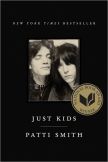[N0te: This piece first appeared in an earlier instance of my blog (troubledsoulsunite.blogspot.com) which has since been shut down. It’s being reposted here under the “My Favorite Posts” section of the blog.]
One of the greatest things about writing a blog is being able to ramble on incoherently. Just writing “stream of consciousness” style, and letting the thoughts that run through your head get put down on paper; or at least typed down into a word file.
I recently finished “On the Road,” the literary masterpiece written by Jack Kerouac. The book is considered to have laid the stepping stones for the “beat” culture and writing style. Kerouac writes in sentences that are way too long for their own good; like an overly excited kid who moves on to the next sentence before finishing the first. Kerouac’s leaping from idea to idea in the span of a few sentences bewilders the mind, and reminds the reader of the wonderment and amazement that comes with childhood, and the selfish mind of an adult who still thinks he is a child. And this, is exactly what Kerouac is; an overgrown child who can’t seem to think of anyone but himself. It is, an effect of the soul searching lifestyle and journey; anyone whose primary focus is to find themselves must definitely be selfish. Yet, selfish doesn’t have to be a bad thing. In Kerouac’s world, his selfishness is necessary for his existence, and fuels his incredibly attractive writing style.
And while his storytelling is great, and his travel descriptions evocative, his real strength lies in his ability to write about music; specifically about jazz- the style that is most commonly associated with the beat movement; the style that fits most happily with stream of consciousness writing, as it itself can be thought of as a stream as well- a stream of instruments, ideas, collaboration between different players, between different sounds and feelings; the jazz that weaves in and out of different thoughts and modes taking the listener from one side of the world to another in the span of a few phrases. Kerouac has the ability, just like jazz does, to transform his reader from wherever they happen to be reading him, to his world, by painting his pictures so vividly, and by enticing his readers to allow themselves to be lost inside his childish mind of excitement, drama, and appreciation. It’s at this point, where the boundary between music and writing is broken, and the reader forgets if they’re reading a description of music, or hearing the actually music and merely thinking Kerouac’s thoughts in their own minds. When the hands forget they’re holding a book, and the mind forgets it’s piecing together streams of words into ideas- this is when the stream of consciousness takes over and convinces us that we are truly hearing the moaning of the horns, the keys, the brushes; the entire band- as we let ourselves get lost in the sounds; in the smoke that surrounds the bar as the band plays late into the night and the early morning, into the sounds, the sadness, the yearning, and all the other emotions that jazz brings along with it.
Read the poetry of the beatnicks, the books of it’s founder, and the music of it’s master; and let yourself get lost in the stream that is our consciousness.







Very interesting, very well written text. Thank you so much, I enjoyed reading every sentence, hilde